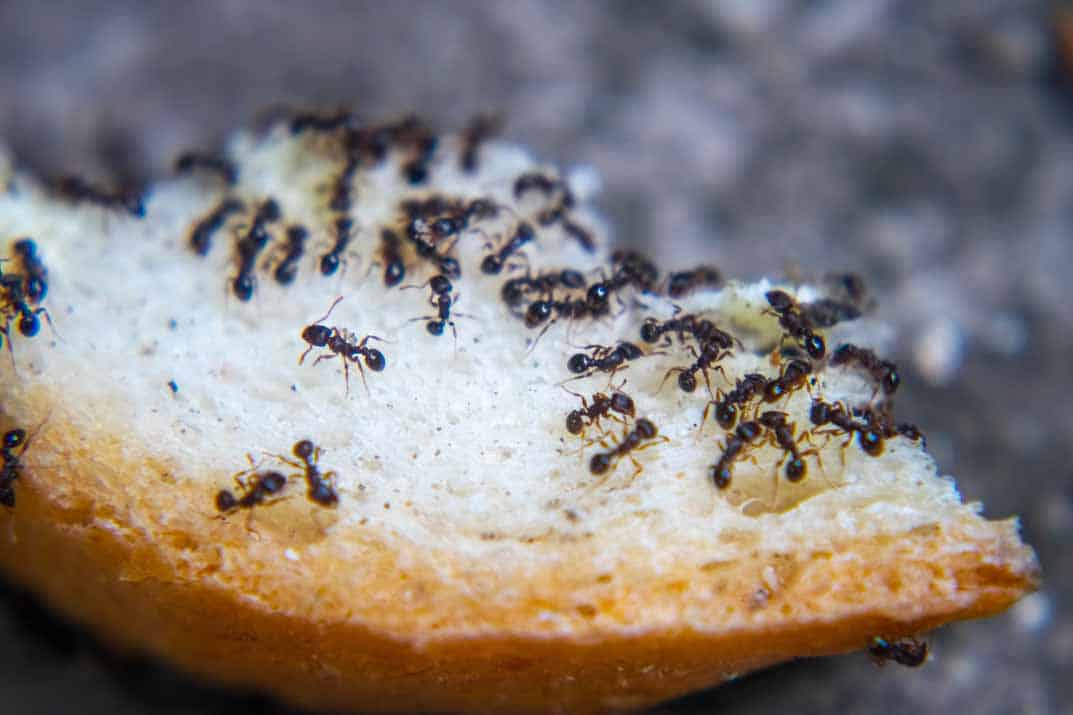You’ve probably seen countless articles, TV segments, or TikTok videos sharing “miracle” methods to get rid of ants using common household items. We understand the temptation to tackle an ant problem on your own—who wouldn’t want a quick, cost-effective fix? However, DIY ant control can be hit or miss. Here at Wake Pest in Raleigh, NC, we’ve seen plenty of well-meaning homeowners struggle for weeks, only to find themselves overrun by even more ants.
The Lure of DIY: Pros and Cons
- Pros:
- You can act immediately without scheduling an appointment.
- Some methods are inexpensive and use household items (like vinegar or dish soap).
- Online tutorials make it feel accessible and straightforward.
- Cons:
- Not all methods address the root cause (the nest).
- Certain home remedies can actually deter ants from baits, causing them to spread out and form more colonies.
- Overusing or misusing chemical sprays can pose health risks or harm local wildlife.
Common DIY Methods
- Vinegar and Water SprayOften touted as a natural repellent. Ants may avoid areas you’ve sprayed, but this doesn’t eliminate the colony.
- Borax/Sugar BaitSugar attracts ants, while borax is toxic to them. This method can work if the ants carry the borax back to the nest, but some ant species prefer protein or fat-based baits over sugar.
- Diatomaceous Earth (DE)DE is a natural powder that can damage an ant’s exoskeleton, causing dehydration. Effective if ants crawl directly through it, but it doesn’t draw ants in; you need to apply it where ants are active.
- Essential OilsOils like peppermint, tea tree, or citrus are known to repel ants. Like vinegar, these can cause ants to avoid areas but may not impact the core colony.
When DIY Works
- Early Detection: If you spot a few scouts early on, wiping down the area with a vinegar-water mixture, sealing cracks, and removing food sources can sometimes stop an invasion.
- Minor Infestations: For tiny colonies or occasional foragers, targeted bait stations or simple repellents might be enough.
- Proper Identification: If you know the specific ant species and their food preferences, you can choose the right bait. Some ants are sweet eaters, while others prefer grease or protein.
When DIY Fails
- Multiple Colonies: Species like Argentine ants can form multiple sub-colonies, meaning you’ll need a more sophisticated approach.
- Carpenter Ants: These ants can be hidden deep within walls, requiring specialized equipment to locate and treat their nests.
- Health Concerns: If someone in your home has sensitivities to chemicals or if you have pets, you’ll need a professional who can use the right products safely.
- Repeated Infestations: If ants keep coming back, it’s likely that the nest has not been addressed, or there are attractants around your property that need professional attention.
The Risks of Going It Alone
A key problem with many DIY strategies is they often kill only the worker ants that come into contact with your homemade remedy. In large colonies, a significant portion of ants never leave the nest, and multiple queens may remain untouched. If the colony senses danger, they might even split into several new colonies—a phenomenon known as budding—leading to a much bigger problem.
Wake Pest’s Professional Approach
When you call Wake Pest, we:
- Inspect Your Home: We search for ant trails, entry points, and potential nesting sites.
- Identify the Species: Our team is experienced with the common ants in Raleigh (like carpenter ants, odorous house ants, and more).
- Tailor the Treatment: We use data-driven strategies, sometimes combining baits, sprays, and dusts carefully placed in strategic locations.
- Offer Prevention Tips: Beyond just extermination, we help you seal gaps, remove attractants, and create long-term barriers.
Cost vs. Benefit
While DIY might seem cheaper at first, multiple failed attempts can add up in cost—and frustration. Meanwhile, a professional treatment might cost more upfront, but it often saves money, time, and stress in the long run.
Raleigh-Specific Insights
Our warm, humid summers and mild winters in Raleigh mean ants can stay active year-round. This also means that once an ant colony has established itself, it can grow quickly. Local tip: Pay special attention to areas near the foundation of your home where leaf debris and moisture accumulate—these are major ant magnets in our area.
Final Word
A DIY approach can sometimes manage a minor ant problem, especially if you act quickly and use the right strategies. However, if ants are returning again and again, don’t beat yourself up—these pests are persistent, and certain species are notoriously tricky to eliminate. That’s why we at Wake Pest are always here to help. We have professional-grade tools, expert knowledge, and decades of combined experience in dealing with Raleigh’s most stubborn ants. Reach out if you’re at your wit’s end or just want peace of mind. We’re here to ensure your home remains comfortable and ant-free.

